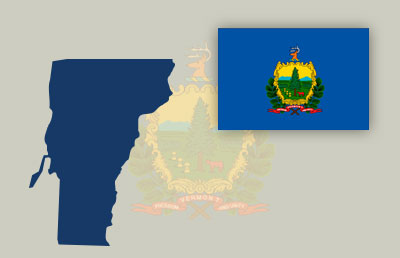Vermont Modifies Provisions Regarding Consumer Protection, Also Enacts Provisions Regarding Uniform Law on Notarial Acts

Consumer Protection
The state of Vermont modified its provisions relating to data security and consumer privacy through House Bill 764. This bill contains provisions dealing with the protection of personal information and the regulation of data brokers and data collectors.
Title 9 V.S.A. § 2430 is amended with definitions to be used in in chapter 62 governing protections of personal information. A data broker is a business with no direct relationship to the consumer that knowingly collects and sells or licenses personal information of the consumer to a third party (9 V.S.A. § 2430(4)(A)). Through House Bill 764 Vermont will require data brokers to register with the Secretary of State, pay a $100 annual fee, and disclose information related to their debt collection practices (9 V.S.A. § 2446). Data brokers have a duty to protect personally identifiable information and must maintain appropriate information security programs and adopt safeguards for the protection of such information (9 V.S.A. § 2447).
The bill also eliminates fees for obtaining a security freeze; Vermont consumers have a right to place a “security freeze” on credit reports pursuant to 9 V.S.A. § 2480h at no charge (9 V.S.A. § 2480h).
The amendments related to data brokers are effective January 1, 2019. The elimination of the fees for obtaining a security freeze is effective upon passage.
The full text of Vermont House Bill 764 can be found here: https://legislature.vermont.gov/assets/Documents/2018/Docs/BILLS/H-0764/H-0764%20As%20Passed%20by%20Both%20House%20and%20Senate%20Official.pdf
Notarial Acts
The state of Vermont enacted provisions relating to its Uniform Law on Notarial Acts. These provisions are effective on July 1, 2019.
26 V.S.A. chapter 103 is added to Vermont Law and may be cited as the Uniform Law on Notarial acts (26 V.S.A. § 5301). This act revises Vermont’s notary laws and is based on the Uniform Law Commission’s Revised Uniform Law on Notarial Acts.
Notarial act is defined in this chapter as “an act, whether performed with respect to a tangible or an electronic record, that a notary public may perform under the law of this State. The term includes taking an acknowledgment, administering an oath or affirmation, taking a verification on oath or affirmation, attesting a signature, and noting a protest of a negotiable instrument.” (26 V.S.A. § 5304(7)(A)).
To obtain commission as notary public one must:
“(1) be at least 18 years of age;
(2) be a citizen or permanent legal resident of the United States;
(3) be a resident of or have a place of employment or practice in this State;
(4) not be disqualified to receive a commission under section 5342 of this chapter; and
(5) pass a basic examination approved by the Office based on the statutes, rules, and ethics relevant to notarial acts.” (26 V.S.A. § 5341(b))
Furthermore an applicant must execute and oath of office and submit it to the Office of Professional Regulation within the Office of the Secretary of State and pay a fee of $15 (26 V.S.A. § 5324)
This chapter also provides standards for notarial acts; requires a notarial act to be evidenced by a certificate, and defines notarial unprofessional conduct.
The full text of Vermont House Bill 526 can be found here: https://legislature.vermont.gov/assets/Documents/2018/Docs/BILLS/H-0526/H-0526%20As%20Passed%20by%20Both%20House%20and%20Senate%20Official.pdf

Comments are closed.